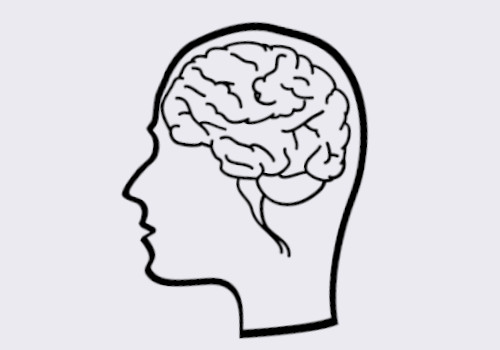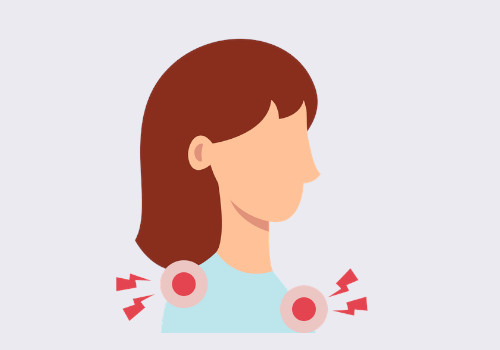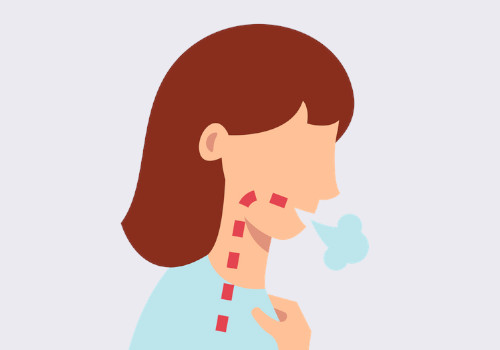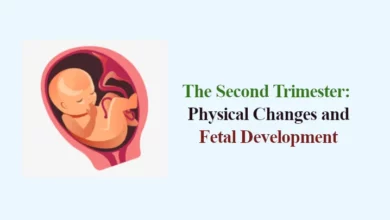Folic Acid Deficiency in Adults-11 Signs Your Body Needs More Folic Acid

It is time to know about folic acid deficiency symptoms in adults. People do not pay attention to ‘Folic Acid’ in their beautiful days. Still, folic acid plays uncountable vital roles in assembling our different vital organs and keeps our body working through hard and hectic days.
The deficiency of folic acid or Vitamin B9 or, in medical term, ‘Folate Deficiency’ can be fatal to our body. However, it is naturally present in most of our regular citrus juices and dark green vegetables.
However, Folate Deficiency can turn into a severe disorder if not treated on time for people who survive on junks.
Folate Deficiency or Folic Acid deficiency often goes unnoticed because of its subtle signs, which we confuse easily with other problems.
Thus, it is of utmost importance that we educate ourselves on identifying the signs indicating that our body is in dire need of Folic Acid. Let’s take a look.
In This Article
Folic Acid Deficiency Symptoms in Adults
Our body’s subtle art is to provide you with a hint of folic acid scarcity, which can be confusing, and most of the time, we mistake it for a consequence of having a stressful life than digging deeper to find the underlying cause.
According to our modern daily lifestyle, having a balanced diet is somewhat of a joke and needs lots of maintenance which we cannot afford.
However, folic acid deficiency can cause such a distressful situation that distracts you by pointing out the other direction. Ultimately, we end up receiving no solution at all.
Signs of Low Folic Acid
Signs of low folic acid can cause mental and physical problems, which, if given indulgence, will surely take over your whole life. Let us examine carefully here.
1. Cognitive Problems ( Neurological )

While seldom we consider our deficiency of one vitamin to be the villain of mental health issues, in most cases folic acid plays a vital role in shaping how our cognitive behaviour rotates around your daily life.
Folic acid is essential for the central nervous system to function correctly. Thus, deficiency of folic acid can stir up depression, make your memory weak, and it can seriously damage your concentration.
The power of folic acid is so strong on our central nervous system that an insufficient intake of folic acid for an extended time can be the root cause of dementia or Alzheimer’s disease.
While mental health issues should be treated with proper care and caution, the importance of having a balanced diet cannot be overlooked in any mental health issues.
And among most of the vitamins, folic acid is the main villain that possesses power over our nervous system’s function.
2. Body Aches

Along with various cognitive issues, folic acid can cause your regular headaches, which you thought, were happening due to sleep problems or stress.
The deficiency of folic acid eventually breaks off the supply of oxygen to our brain, and it causes severe headaches as the arteries of the brain swells up.
Also, the insufficient supply of oxygen to different parts of our body can cause body pain in other parts of our body and leg cramps.
3. Shortness of Breath

The supply of oxygen to our brain and different parts of our body is directly linked to our lungs as well. As folic acid breaks off the supply of oxygen, it can lead to shortness of breath or tightness of the chest.
In general, shortness of breath is not a significant sign of deficiency of folic acid. However, if any other symptoms accompany shortness of breath, it should be appropriately treated as a deficiency of folic acid in our body.
4 Stomach Issues
An upset tummy is something no one welcomes in their life with open hands. Severe digestive problems, including stomach pain, diarrhoea, vomiting, or nausea, are the sign of junk food intake and a red signal to have more folic acid concentrated nutrition daily.
Folic acid plays a direct role in all the digestive issues that we face, and with the right amount of folic acid included in our diet, we can prevent that quite easily.
However, if untreated, this can lead to severe weight loss within a span of a few months.
ALSO READ: Magnesium Deficiency Symptoms
5.Weakness and Sore Mouth
Although this might sound like a very vague sign, weakness and having a sore mouth are two of the most important signs that we face when our body lacks the necessary folic acid.
Folic acid essentially helps in building up the haemoglobin, and haemoglobin keeps our energy level intact. This can also cause fatigue and turn our skin pale.
Also, frequent sore in the mouth is an obvious signal of deficiency of folic acid in our body. Sore in the mouth, the swollen tongue is caused mainly by the deficiency of folic acid.
6. Loss of Taste
Regular intake of insufficient folic acid eventually deactivates papillae or the taste receptors of our tongue, and in turn, we become unable to taste any food.
Our tongue swelling up is the first symptom of folate deficiency, while losing the sense of taste is the second.
ALSO READ: 10 Best Home Remedies for Anemia
7. Hand Numbness
Hand numbness or a continuous tingling feeling in your hand is another very prominent sign of folate deficiency that we usually ignore most of the time.
Not only hand, but the numbness can also be felt at feet and other extremities of our body.
While the stroke is usually identified with body part numbness symptoms, folic acid might play a significant role in this case.
8. Glossitis
Glossitis is the tongue’s swelling due to a lack of folic acid if ignored for an extended period.
It can occur in megaloblastic anaemia, which is also caused by the deficiency of folic acid. In the case of glossitis, the tongue swells up abnormally and becomes very sore as well.
9. Grey Hair

While finding grey hair at a young age is often linked to liver problems, the underlying villain could be folic acid.
The deficiency of folic acid can turn your hair grey in no time, and if the condition worsens, the situation becomes irreversible as well.
10. Growth Problems
Folic acid interferes with our body’s growth hormone and plays an essential role in our growth, especially for the fetus.
Thus, pregnant women are highly suggested to intake more folic acid to be born with folate deficiency.
Read more: Signs Your Body is Deficient in Vital Nutrients.
10. Tinnitus and Palpitation
Tinnitus is defined as hearing sounds coming from inside the body, making people develop extreme OCD behaviour and schizophrenia.
Folate deficiency also causes palpitation, which develops many cognitive problems such as GAD or General Anxiety Disorder.
Sources of Folic Acid

Folic Acid or Folate belongs to the essential Vitamin B family, and it is categorized as Vitamin B9 in the list of body minerals. Folic acid takes part in developing new cells and provides nurturing nutrients to Red Blood Corpuscles.
Also, folic acid plays a significant role in preventing rapid changes in DNA, which helps prevent cancer.
The source of folic acid is quite common, and we do not need to search for it and spend anything extra.
Dried beans, lentils, peas, beets, broccoli, brussels sprouts, spinach are the most common food source of folic acid. Apart from these vegetables, folic acid is also present in most leafy green vegetables and cereals that we consume daily.
If you are not the biggest fan of green vegetables, there are other resources from where you can consume folic acid; however, those options might not be ideal.
Eggs and beef liver are the two most important sources of folic acid. Also, papaya and banana demand to be full of vitamin B9, which is ignored by most.
Frequently Asked Question & Answers-
Q. How to know if you have folic acid deficiency?
A. Folate deficiency is characterized by a lower-than-normal level of folic acid, a form of vitamin B, in your blood. Folic acid deficiency can be confirmed by a blood test. Common symptoms include extreme fatigue, lack of energy, breathlessness, feeling faint, headaches and pale skin.
Q. What are the symptoms of folic acid deficiency?
A. The primary symptom that leads to folic acid deficiency is extreme fatigue, lack of energy, breathlessness, feeling faint, growth problems, headaches and pale skin.
Q. What are the benefits of taking folic acid?
A. Folic acid is essential for all. However, it is necessary for women who can become pregnant! Folic acid aids in the proper development of an unborn baby’s brain, skull, and spinal cord, thereby avoiding congenital disabilities called neural tube defects. Folic acid is used to cure certain forms of anemia caused by a lack of folate by raising the red blood cell production in the body.
Q. Does folic acid grow hair?
A. Folic acid Helps in Hair Growth by generating new cells; taking a folic acid supplement will only help you if you are deficient in folic acid.
Q. Is folic acid deficiency serious?
A. The majority of cases in folic acid deficiency anemia are treatable. Severe consequences are uncommon. However, suppose you have been deficient in folate for an extended period. In that case, your risk of developing certain types of cancer and heart disease increases, you could also have a lot of trouble getting pregnant.
Final Words
While we restrict the functions of vitamins to our beauty standards, it does more than we can ever think of.
Also, the ignorance of one of such vitamins can actively misbalance our life, and most of the time, we are not even aware of it.
In increasing mental health problems, it is not wise to ignore the leafy green vegetables. So, friends, we hope that going through the above folic acid deficiency symptoms in adults will surely help you.
Don’t miss
- Skin tags home remedy removal
- Uric acid foods to avoid
- Urinary tract infection
- Hypotension symptoms
- Signs of throat cancer
Reference from trusted sources–
- Folate dietary insufficiency and folic acid supplementation similarly impair metabolism and compromise hematopoiesis.
- Folic Acid –Education Materials and Information Resources
- Update on folic acid – Gov.uk
- Folic Acid: the Vitamin That Helps Prevent Birth Defects
- Folic Acid Supplementation and Pregnancy
- Safety of folic acid -NCBI -NIH
- The importance of folic acid – PubMed
- An audit of the investigation and treatment of folic acid deficiency.
- New Perspective on Impact of Folic Acid Supplementation





